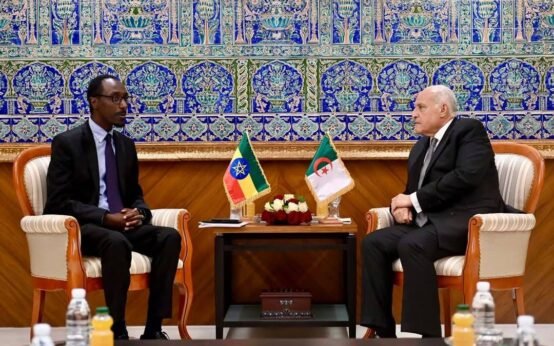Algeria’s Foreign Minister Ahmed Attaf met with Mohamed Yeslem Beissat, the Polisario Front’s representative in charge of foreign affairs. The meeting took place in Algiers and focused on the long-standing conflict in Western Sahara. Both sides spoke about the urgent need to restart political discussions, especially after a recent report from UN Secretary-General Antonio Guterres. The UN chief asked all parties to take concrete steps to move forward and avoid a long stalemate.
Importance of UN Mediation in the Western Sahara Dispute
Algeria and the Polisario Front underlined their support for the United Nations process. They believe that only a UN-led dialogue can lead to a fair solution that respects the rights of the Sahrawi people.

According to them, the goal must remain self-determination, which would allow the Sahrawi population to decide their own future. The two sides called on all actors, including Morocco, to join negotiations without preconditions.
The Two Opposing Views on the Future of Western Sahara
The conflict in Western Sahara has lasted for decades. On one side, the Polisario Front demands independence for the Sahrawi people. Algeria strongly supports this position by offering political and financial backing to the movement. On the other side, Morocco proposes an autonomy plan.
This plan would give Western Sahara limited self-rule but keep it under Moroccan sovereignty. In recent years, several powerful countries such as the United States, the United Kingdom, and France have voiced support for Morocco’s plan, saying it is a practical and realistic option.
International actors, especially the UN, the African Union, and European countries, continue to watch the issue closely, as it influences trade, migration, and regional cooperation.
Will Dialogue Replace Division?
The latest talks in Algiers show that Algeria and the Polisario Front remain firm in their demand for a referendum on independence. At the same time, Morocco’s growing international support makes its autonomy plan more visible on the global stage.
The question now is whether both sides can find common ground through UN mediation. With a new UN deadline approaching, the future of Western Sahara will depend on how much political will the parties show. Without compromise, the conflict risks dragging on, leaving the Sahrawi people in uncertainty for many more years.
United Nations Calls for Political Action and Dialogue
The United Nations has been involved in the issue for many years through MINURSO, the peacekeeping mission in the region. However, the political process has often stalled. In its most recent resolution, the UN Security Council stressed the importance of relaunching direct talks.
The Western Sahara conflict is not just about territory; it also affects stability in North Africa. Tensions between Algeria and Morocco have already led to the closing of borders and strained diplomatic ties. Many observers believe that without progress, the situation could create wider security risks, including more tension across the Sahel region.


 Ethiopia’s Foreign Minister Begins Strategic Working Visit to Algeria
Ethiopia’s Foreign Minister Begins Strategic Working Visit to Algeria